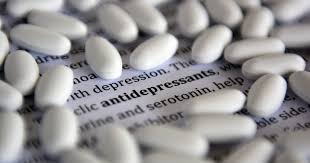
Gut Serotonin: A Novel Pathway to Mood Modulation and Safer Antidepressants
A groundbreaking study has identified serotonin in the gut epithelium as a key player in modulating mood and addressing anxiety and depression, with implications for safer and more targeted treatments. Published in Gastroenterology, the research sheds light on the gut-brain axis and its potential to revolutionize antidepressant therapies.
The Gut-Brain Connection: Serotonin's Dual Role
Serotonin, often dubbed the "happiness hormone," is predominantly produced in the gut rather than the brain. While selective serotonin reuptake inhibitors (SSRIs) enhance serotonin signaling in the brain to treat mood disorders, they also impact the gut, leading to gastrointestinal side effects such as irritable bowel syndrome (IBS) or constipation. This dual role of serotonin forms the crux of the new findings.
"Our study suggests that targeting serotonin production in the gut epithelium could alleviate mood disorders while avoiding systemic side effects," explained Dr. Kara Margolis, Director of the NYU Pain Research Center and co-lead of the study.
Promising Results from Animal Studies
The researchers utilized mouse models to investigate the impact of serotonin manipulation in the gut. By selectively blocking the serotonin transporter in the gut epithelium, the mice exhibited improved anxiety and depression symptoms without the gastrointestinal dysfunction seen with systemic SSRIs.
“This adds a critical perspective to the long-held idea that the therapeutic effects of SSRIs come solely from targeting the central nervous system,” noted Dr. Mark Ansorge, co-lead of the study and clinical neurobiologist at Columbia University.
In a striking experiment, the team severed vagus nerve pathways, a key communication channel between the gut and brain, to confirm the gut's role in mood modulation. This intervention eliminated the mood improvements, underscoring the importance of the gut-brain connection.
Implications for Prenatal Antidepressant Use
The human arm of the study examined 400 mother-child pairs, revealing that prenatal exposure to SSRIs significantly increased the likelihood of functional constipation in children. At one year of age, 63% of children exposed to SSRIs during pregnancy experienced constipation compared to 31% of unexposed children.
“This finding suggests a potential connection between serotonin levels in utero and gut development,” said Larissa Takser, professor of pediatrics at Université de Sherbrooke and a co-author of the study. She emphasized that these findings, while significant, do not warrant changes to current clinical practices without further research.
Handling the Risks and Benefits of Antidepressants
Pregnant women often face a difficult choice: the risks of untreated anxiety and depression versus the potential side effects of antidepressant use. "These findings should not deter patients from taking prescribed SSRIs during pregnancy," cautioned Margolis. "Instead, they highlight the need for more research into alternatives."
Untreated maternal depression can lead to adverse outcomes for both mother and baby, including preterm birth and developmental challenges. Cognitive behavioral therapy and mindfulness-based interventions may complement pharmacological treatments in specific cases.
A Paradigm Shift in Antidepressant Design
The study paves the way for developing gut-specific antidepressants, a potential game-changer for mood disorder treatment. "Restricting an antidepressant's action to the gut epithelium could circumvent side effects like gastrointestinal distress and prevent transmission through the placenta or breast milk," Margolis added.
By targeting serotonin transporters in the gut exclusively, these medications may also reduce the dropout rates associated with initial side effects of traditional SSRIs.
Future Directions and Clinical Implications
This research calls for further investigation into the gut-brain axis, focusing on its therapeutic potential for mood disorders and gastrointestinal conditions. The collaboration between leading institutions, including NYU, Columbia University, and Université de Sherbrooke, highlights the growing recognition of gut health's role in mental well-being.
"These findings open new doors to examine SSRI properties not previously studied," said Takser. "The gut epithelium may be a safer and more effective target for antidepressants."
With anxiety and depression affecting one in five adults in the U.S., this innovative approach could mark a turning point in mental health care. As Margolis emphasized, “This is not just about solving gut issues; it's about understanding how our bodies and minds are interconnected at the most fundamental levels.”
The study's dual focus on animal and human models underlines the potential of gut serotonin as a novel target for safer, more effective mood disorder treatments. As the science of the gut-brain axis advances, it offers a beacon of hope for millions grappling with mental health challenges and their associated side effects.